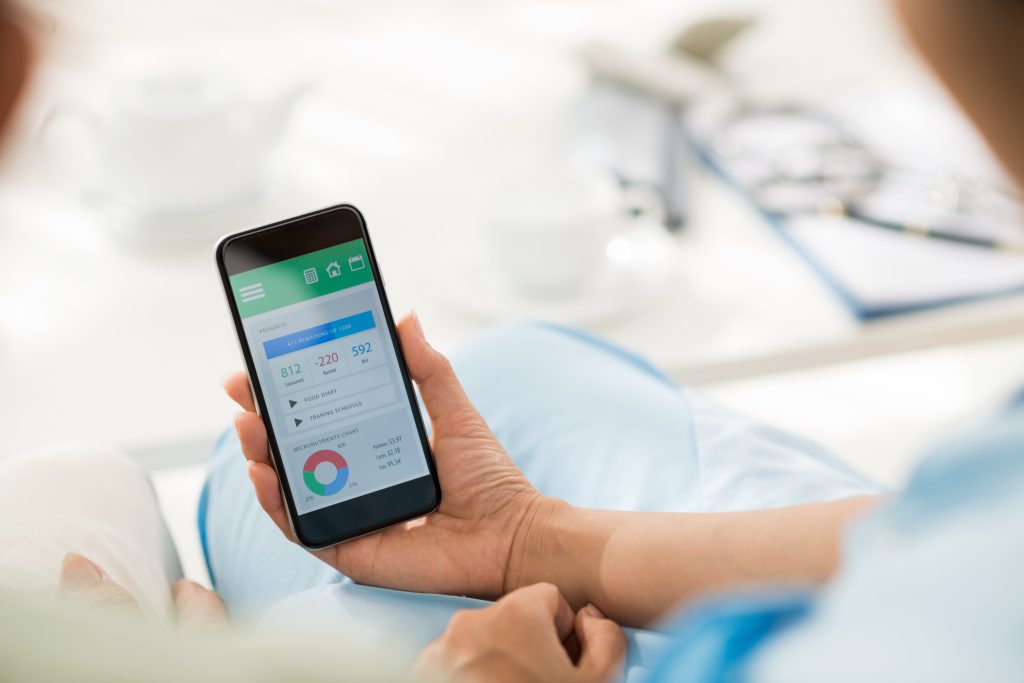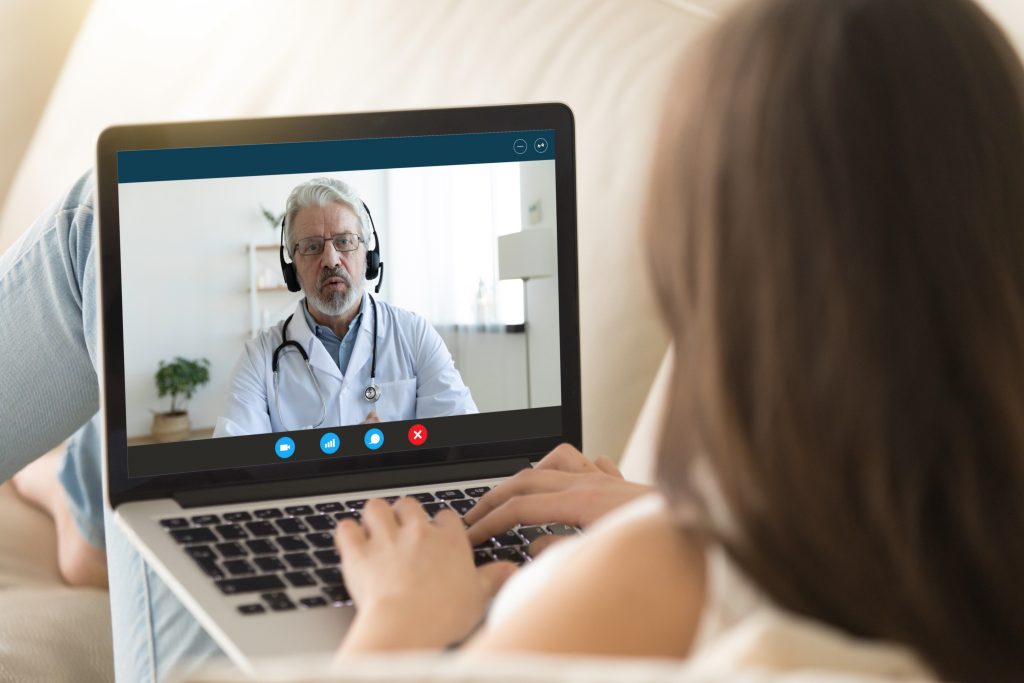
Optimising the patient experience is a tangible route to competitive advantage for any organisation invested in human health and wellbeing. Health technology is transforming the patient-facing medical journey while backroom solutions improve the capabilities of clinical staff. Through leveraging mobile applications, devices, and platforms, health professionals are crafting a digital experience beneficial to all parties involved, bringing the effort to enhance the patient experience from the waiting room to the cloud.
COVID-19 restrictions thrust medical processes into the palm of the patient. The rapid development and uptake of new health-related technology gave greater patient control over touchpoints reliant on digital. Patients are now informed, empowered and encouraged to take their health into their own accord, while medics and clinicians enjoy more significant levels of accessibility, efficiency and accuracy. The result? A new, developing, digital-first healthcare paradigm.
To investigate this further, we surveyed over 200 members of our online audience around their health technology experiences and opinions. We then invited a panel of healthcare and digital health experts to discuss the results, their views on health technology, how it may develop, and the resulting impact on the patient experience.
- Pasha Normahani – NIHR Clinical Lecturer at Imperial College London and Specialist Vascular Registrar at Imperial College NHS Healthcare Trust.
- Alex Eavis – Chief Product Officer for Digital, Data & Analytics & Pharmacy at EMIS Group Plc.
Key Takeaways
Our survey provided valuable insights into what users want, need and expect from digital health technology. It also highlighted that while usage is growing, HealthTech adoption has a long way to go. Let’s explore some of the key takeaways from the discussion below.

Usability
As with all applications and devices, usability is often the definitive factor in the uptake of new technology. Our recent health survey demonstrated this, where 75% of respondents stated “ease of use” was the essential element of using and adopting a health app. A frictionless user journey is the underlying aspect of an application’s engagement, approval and user retention. But far from just a user-friendly interface, health tech must cover a range of factors to be widely adopted.
Security and privacy by design are a must, especially in healthcare. Users need to know the where, what, and why regarding their data – and that the information they divulge is in safe hands. One future solution may be blockchain technology, where a leger tracks all activity with clarity of ownership, giving transparency similar to NFTs and cryptocurrencies.
Other factors influencing usability include seamless integration with new and existing tech and clarity of purpose, informing users of what they stand to gain from engaging. Future technology must feel so native, secure and value giving that adopting it is a no-brainer.

Engagement
How can HealthTech be designed to drive engagement? One issue practitioners face is that patients engage when something hurts, aches or niggles but not when the skies are blue. The data captured paints an unbalanced picture of an individual’s wellbeing if readings only represent ill-health.
Potential solutions involve a holistic health portal with a constant feedback loop. The most commonly used health apps track phenomena in total health, such as fitness and diet, or physical cycles like sleep and menstruation. Future tech may combine these inputs with those relevant to diseases and afflictions past and present to give an inclusive view of an individual’s health.
By amalgamating all aspects of our health into one platform, touchpoints can be minimised to collect user data, with positive reinforcement through digital nudges steering users toward consistent engagement.

Prescription Tech
A stand-out statistic from our survey showed 90% of respondents had not been recommended digital health technology by their healthcare provider. A lack of education or clarity in clinicians may play a part in this. For example, although applications for treating mental illness have advantages over prescription drugs, a saturated market makes it difficult to know which offering may be most effective.
While discussing this, our panellists revealed that the standard of technology produced in the UK is not matched by that of health service procurement. Due to a lack of agility in the public sector, sophisticated health tech is often developed here and marketed abroad. Through increased uptake of wearables and mHealth apps, however, digital health is being driven into the spotlight. As the focus on digital therapeutics grows, the likelihood of governing bodies investing more in gold-standard, prescribable tech does too.
Management of chronic disease is one area particularly influenced by patient-facing technology. Data captured via applications and devices are already improving the treatment of diseases such as cancer, CVD and diabetes. Optimising the use of digital in the treatment of these diseases has huge potential benefits to the patient while saving health services time and money.

Telemedicine
Telemedicine is here to stay. There are advantages to face to face interactions and as an illness progresses this may of course be necessary, but the accessibility and efficiency of telehealth can’t be questioned. Chat features will likely play a larger part in future consultations, as communication via text may subside some patient embarrassment and provide a ‘paper trail’ transcript for clinicians to review.
The downside to telemedicine is the lack of personal touch. In our recent research, only 25% of respondents chose video consultation as their preferred method of communication, showing a desire for human interaction. It makes sense – building rapport with your patients is difficult in a short consultation through a screen. As emerging tech such as AR and VR become more common in the home, virtual appointments will likely take a more immersive, interactive nature and fill some personal gaps missing in remote consultations.

Data Accessibility
In some areas of the UK, software is readily available that allows patients to access their medical data. As time goes on this will become ubiquitous. The more a patient can see and understand their situation, the more they are empowered to control it. For example, a patient tracking a new diet through an app may compare blood tests before and after to decide whether or not it is working or is worthwhile.
Giving patients a greater understanding of their data also leads to higher level conversations with practitioners. If all health data is amalgamated into one holistic portal, patients become the custodians of their wellbeing. Through wearable devices augmented by artificial intelligence, machine learning can identify abnormal readings invisible to the untrained eye and flag them for further investigation.
—
Health technology is transforming the patient experience by empowering them. Users are in the driving seat more than ever when accessing health services and personal involvement is at an all-time high. As the adoption of health tech grows, healthcare will become increasingly personalised, letting patients work in unison with practitioners and technology to produce optimum outcomes from a digital-first patient experience.
- Learn more about how applications platforms and devices are transforming healthcare in our recent whitepaper: Digital solutions that are re-imagining the patient experience
Waracle are industry leaders in developing digital health solutions that make lives better. We work with enterprise clients to design, develop and deliver mobile and emerging tech applications that impact diagnostics, treatments, research and development, and more. If your organisation is taking steps toward digital innovation, get in touch with our experts and find out how we can help.


